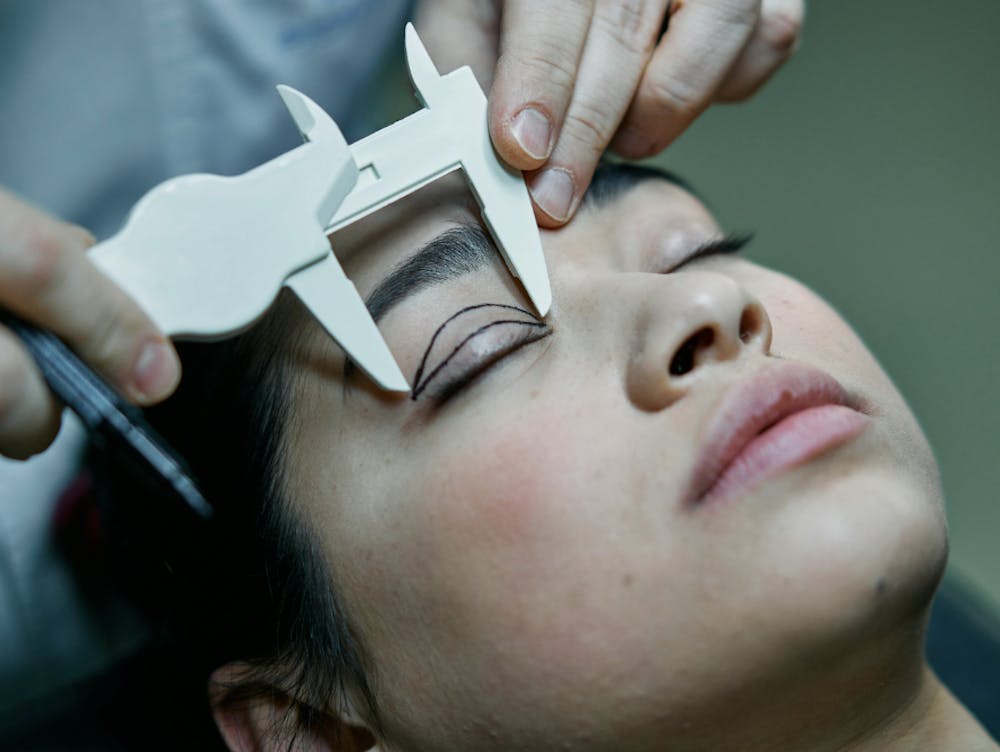Are you constantly surrounded by “Ugly” people? Do you ever fantasize about what you would look like with yellow eyes? Have you ever given your best friend a special, on-the-nose nickname derived from their biggest insecurity?
If you answered yes to any of these questions, great news! You are not alone, and you are “Ugly.”
If you are having difficulty accepting this label, we understand. We sympathize. Do not worry. The leader of our society, Dr. Cable, has just the mandatory, life-altering surgery for you. And the best news? It’s absolutely free!
All citizens seeking surgery must be at least sixteen. No parental consent required. Brainwashing sold separately.
If that sounded idiotic to you, congratulations! You have common sense, unlike most of the characters in the Netflix film Uglies, released on Sept. 13.
Based on Scott Westerfeld’s Uglies trilogy, the movie centers around a dystopian society in which citizens are divided into two classes: “Uglies,” or naturally unexceptional children, and “Pretties,” or cosmetically enhanced people over the age of 16. When “Uglies” turn 16, they are required to become “Pretties” by undergoing extensive cosmetic surgeries mandated by their leader, Dr. Cable (Laverne Cox).
In other words, yes, this world consists of a society composed almost entirely of Kardashian-Jenners
Tally (Joey King) is an “Ugly” aspiring to be a golden-eyed “Pretty.” When her best friend Peris (Chase Stokes) — whom she creatively calls Nose due to his large, “ugly” nose — turns “Pretty” and grows distant from her, Tally becomes even more fixated on getting the surgery. However, when the day of her procedure does not go as planned, she is forced to confront the reality of the society she once cherished.
I can’t sugar-coat it: This was one of the worst movies I’ve seen in a while. The film does not even manage to start off on a good note. The first five minutes feature a montage of cheesy stock videos with a voiceover of King describing the history and laws of the dystopian society.
Yet even after this bland, oddly explicit attempt to establish the setting of the film, the details of how the society works are still unclear. Do people have jobs? From what we can see, “Uglies” spend most of their time in a cement barracks masquerading as a boarding school. “Pretties” spend their time partying on rooftops, sipping champagne and watching seemingly never-ending fireworks.
Are we just supposed to assume that their jobs are just being “Pretty” and “Ugly”?
How does time work in this film? What year is it? Throughout the film, we see people driving motorcycles, riding horses and taking pills that brush their teeth for them, so it could honestly be any time period. How much time passes from the beginning of the film to the end? We know that at least three months pass in roughly the first third of the film since Peris gets his surgery and Tally is three months younger than him, but, after that, anything from a week to a month to a year passing could be possible.
The characters themselves are also extremely weakly developed. Teenager Tally, played by a very adult King, is insipid and uninspiring. She is meant to be rebellious, but the most we see her do is pick a lock to break into a kitchen and do tricks on a fancy hoverboard. She spends most of the film being indecisive, moping about being “Ugly” and flirting with David (Keith Powers), the leader of the rebellion against Dr. Cable.
Don’t even get me started on David.
The aura of mystery surrounding him ends up being so anticlimactic. Even before he makes an actual appearance in the film, his name is mentioned by various characters. He has a presence, so I was expecting charisma. I was expecting charm. I was expecting all the cliché enemies-to-lovers tropes.
Instead, we got a lame, wimpy, spineless David. Right away, he is too trusting of Tally. He lets her in on all the secrets of their rebel camp — in the woods for no reason — which just seems like irresponsible leadership. And, when the camp is attacked, he hides. Do something! If you’re in a forest, at least pick up a stick and try to defend your home and followers.
I also hated Dr. Cable, which was a shame because I really wanted to like her. She has the potential to be fabulous, and Cox is stunning, but she lacks depth and her motivations are unclear. Why is it so personally important to her that everyone gets the surgeries? I did not sense any convincing internal tension. Nothing about her seemed evil or cruel — just passive and robotic.
The irony is that, though this film is all about questioning superficial beauty standards, it is as superficial as they come. It fails to delve deeper into the major problems the dystopia faces, like how all the “Ugly” children are abandoned by their “Pretty” parents until they are able to turn “Pretty.” That experience is traumatic, yet the film focuses on a one-dimensional ‘good vs. evil’ fight between Tally and Dr. Cable.
If you must, read Westerfeld’s original source material. Better yet, return to the tried-and-true Hunger Games series. But, as the semester begins to pick up, if you have an hour and forty minutes to spare, please take my advice and skip this film. Don’t waste the brain space on this rot.





